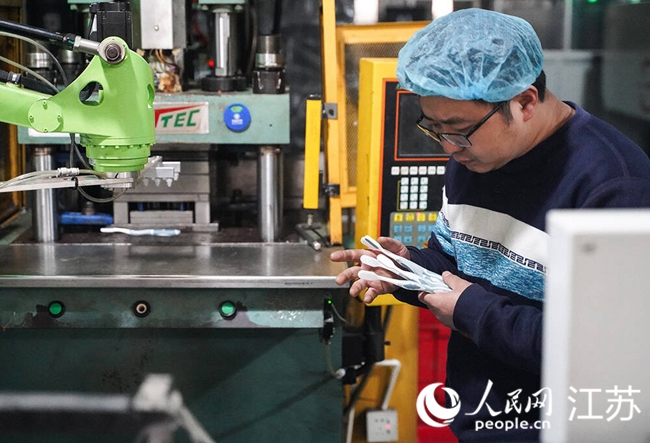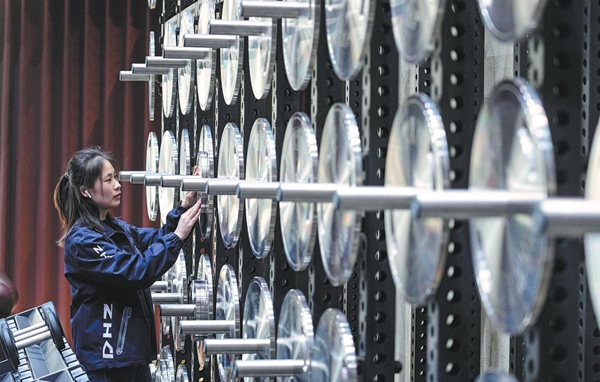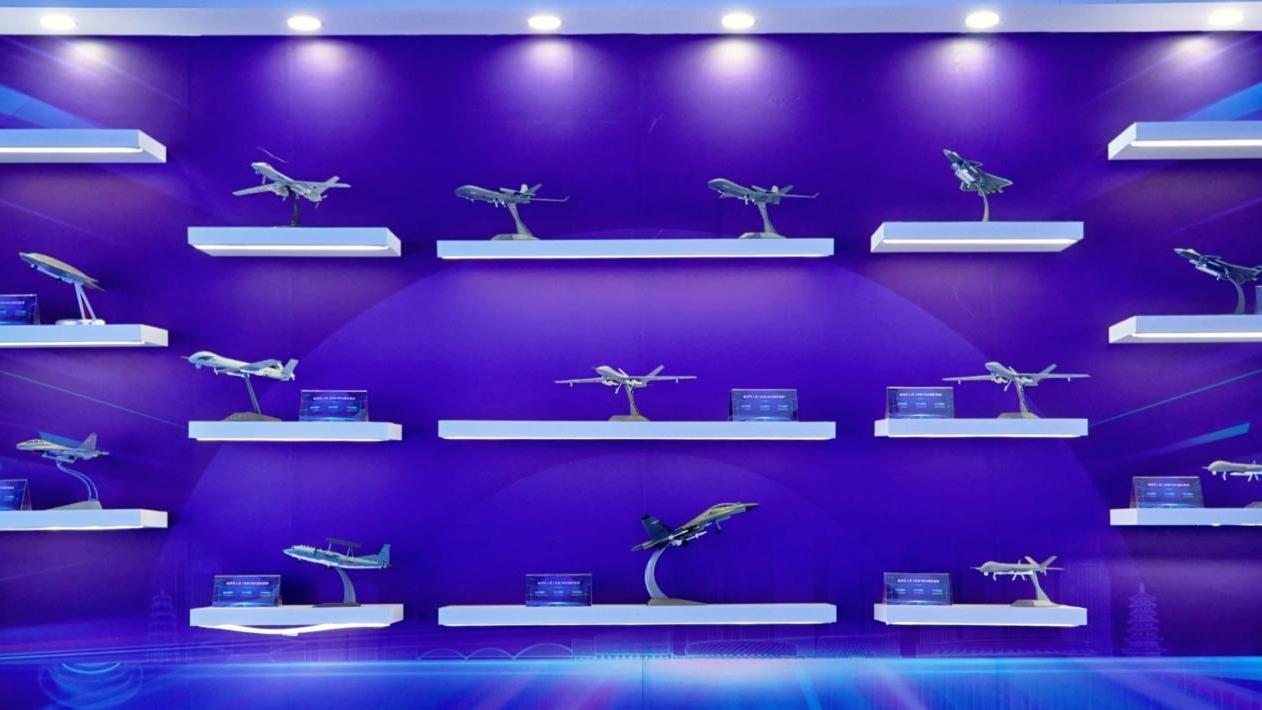Small places in China cultivate big industries

A technician inspects machine injection effectiveness on a semi-automated production line at a toothbrush factory in Hangji town, Yangzhou city, east China's Jiangsu Province. (People's Daily Online/Gao Chao)
A toothbrush powerhouse in E China's Jiangsu
At an intelligent toothbrush factory in Hangji town, Yangzhou, east China's Jiangsu Province, nearly 200 automated robots work in unison, their mechanical arms moving with precision.
By introducing intelligent robots, automated production lines, and software systems jointly developed by enterprises and professional innovation teams, the facility has achieved fully automated production, storage, transportation, and inspection—without the need for manual intervention.
This is just a snapshot of the ongoing upgrading of Hangji's toothbrush industry. Today, Hangji, recognized as the world's largest toothbrush manufacturing base, produces 7.5 billion toothbrushes annually, with an output value of more than 13 billion yuan (about $1.8 billion). This accounts for over 80 percent of the domestic market share. The town sells toothbrushes to more than 80 countries and regions. Globally, one out of every three toothbrushes originates from the town.
Leading toothbrush enterprises in the town are evolving into "one-stop oral care solution" providers, broadening their product range from toothbrushes to dental floss, interdental brushes, mouthwash, and water flossers, thereby advancing toward a full-scale oral care industry chain.
"We are accelerating digital intelligence and upgrades, helping traditional toothbrush and hotel amenity companies pivot toward high-end daily chemical and health industries," said Liu Rui, deputy head of Hangji town.
Your phones screen protector may come from E China's Anhui
"Need a screen protector? Privacy-proof, tempered glass, hydrogel… All made locally—everyone loves them!" A street vendor in a pedestrian street of Taihu county, east China's Anhui Province, greets passing customers enthusiastically.
These various types of phone screen protectors all come from Taihu. In fact, phone screen protectors are only a small part of the county's functional film new materials industry. By the end of 2024, Taihu county had gathered 100 upstream and downstream enterprises in this sector, including 36 above-designated-size industrial enterprises. The output value of functional film enterprises accounted for more than 50 percent of the county's total above-designated-size industrial output, reaching 4.53 billion yuan.
Over a decade ago, Shanghai-based Jinzhang Technology set up operations in Taihu, moving steadily from the low end of the industry chain to the middle and high end. Today, its products cover functional films for smartphone display protection, outer-layer films for new display screens, and key optical films within displays. Acting as an industry magnet, Jinzhang Technology has attracted many other partners in the industry chain to the county.
Currently, Taihu is home to seven national-level "little giant" companies—small and medium-sized enterprises that specialize in niche markets and are endowed with cutting-edge technologies and great potential—six of which belong to the functional film new material sector.
An entire fitness equipment supply chain in E China's Shandong
In Ningjin county, east China's Shandong Province, digital fitness is on the rise. After logging in, customer Li Chao's profile appears in the intelligent system of a local fitness equipment manufacturer. In the company's smart experience area, Li registers for a 24-hour unmanned gym service. Following a physical fitness assessment, data such as body fat percentage and muscle mass are instantly uploaded, generating a personalized workout plan on the spot.

An employee sorts fitness equipment at Shandong DHZ Fitness Equipment Co Ltd in Ningjin county, Shandong province. (Xinhua/Zhu Zheng)
The new intelligent equipment, developed in collaboration with Chinese tech startup DeepSeek, can even adjust a user's exercise angles in real time, according to Liu Xinli, the company's general manager.
Ningjin is home to 2,986 fitness equipment enterprises, with products sold to over 170 countries and regions. In 2024, the local fitness equipment industry's annual output value exceeded 13.9 billion yuan.
From a steel plate to a finished product, every step in making fitness equipment can be completed entirely within Ningjin.
Leveraging its foundation in hardware and machinery manufacturing, Ningjin has guided small and micro enterprises to provide supporting production, bringing together over 200 auxiliary companies. The local sourcing rate for raw materials and parts exceeds 95 percent.
From raw material procurement, design and R&D, production and processing, to packaging and sales, a piece of fitness equipment can be completed without leaving the county—shortening R&D cycles by 40 percent and reducing production costs by 30 percent.
In the Ningjin fitness equipment manufacturing cluster, all above-designated-size enterprises have R&D platforms, including eight provincial-level or higher platforms. The entire industry cluster holds more than 1,400 patents, including 60 invention patents.
Across the county, fitness equipment enterprises have invested nearly 1.8 billion yuan in intelligent and digital transformation, boosting production efficiency by an average of 200 percent.
Photos
Related Stories
- "Made in China" gets high-tech makeover via design innovation
- China's manufacturing sector softens in July, new drivers resilient
- China's manufacturing hub enhances economic and trade exchanges with Europe
- China's structural tax, fee reductions benefit high-tech, advanced manufacturing firms
- China's vice premier stresses high-quality development of manufacturing industry
- China's electronic information manufacturing industry reports rapid growth in Jan-May
- China's electronic information manufacturing industry reports rapid growth in Jan-May
- China's manufacturing sector sees stronger momentum with steady transformation
- China's tech sector taps bioproduction to fuel expansion
- China's non-manufacturing PMI at 50.5 in June
Copyright © 2025 People's Daily Online. All Rights Reserved.









